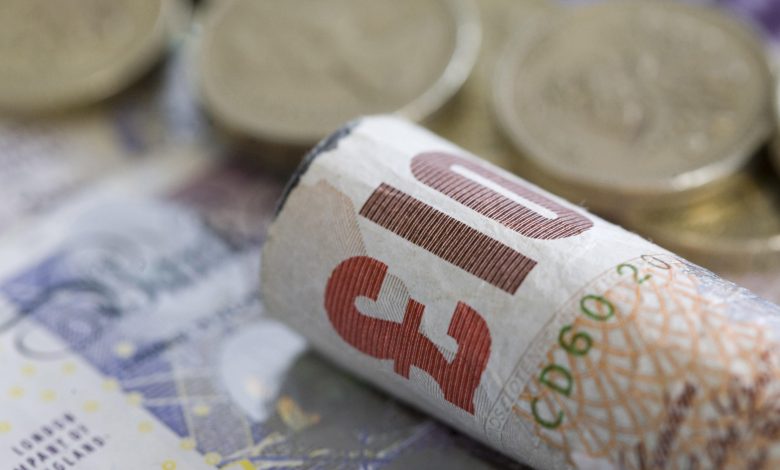UK’s richest face prospect of sharp Labour tax hikes on wealth

BRITAIN’S Labour government has been urged to stick to its plan for higher taxes on wealth, even as business groups and advisers to the rich call for restraint.
Tax hikes would reduce steep inequalities between different parts of the UK, according to a new report from the Institute for Public Policy Research (IPPR), a left-leaning think tank with a history of influencing the Labour party.
The average person in the north of England will have £210,000 (S$360,764) less wealth than someone in the south-east by the end of the decade, the IPPR said on Thursday (Aug 29), arguing that income from dividends and capital gains should be taxed at the same rate as wages.
“Right now, the UK’s tax system is skewed, holding back attempts to reduce regional economic inequalities and benefiting a lucky few who largely get their income from wealth, not work,” said George Dibb, the IPPR’s associate director for economic policy.
Taxes should be higher on expensive properties, he added, and on inherited assets, which it said accounted for 60 per cent of private wealth in the UK.
The Fabian Society, another think tank on the centre-left, this week said tax relief on pension contributions should be reduced. Andrew Harrop, its general-secretary, called the tax-free allowances “very expensive and very unequal”, as they tend to benefit higher and top-rate taxpayers.
BT in your inbox

Start and end each day with the latest news stories and analyses delivered straight to your inbox.
Prime Minister Keir Starmer laid the ground this week for an October Budget that would be particularly painful for those “with the broadest shoulders”.
His party was already expected to raise wealth taxes, given its spending pledges in the run-up to the Jul 4 election victory. Since then, Starmer and his Chancellor of the Exchequer Rachel Reeves have repeatedly talked down the fiscal situation inherited by the previous Conservative government – triggering fears that tax hikes will be even sharper than previously anticipated.
However, Labour’s hierarchy faces a delicate balancing act given its vow to prioritise economic growth and wealth creation.
“Expectations of aggressive tax hikes risk creating distortions,” said Jonathan Moyes, head of investment research at Wealth Club, an investment adviser. Banking stocks dropped in London on Wednesday amid speculation around tax policy, with Natwest, Barclays and Lloyds leading declines.
Black hole
Even before taking office, Labour had the rich in its sights, pledging to scrap preferential treatment for high-net-worth foreigners living in the UK – so-called non-doms – as well as ending a private equity industry perk and slapping value-added tax on private school fees. Yet, nearly two months on from the election, it looks as if there could be more to come.
In her first weeks as chancellor, Reeves said she had uncovered a £22 billion “black hole” in the public finances and confirmed she would raise more taxes at the Budget. Much of that extra money is needed to fund public sector pay raises.
Labour has said it will not hike income tax, the national insurance payroll tax, the main value-added sales tax or corporation tax – which covers about two-thirds of the UK’s total tax take. Reeves is therefore likely to raise revenue from levies on capital gains, pensions or inheritance, which are geared towards wealthier Britons.
Speaking to reporters on Wednesday, Reeves declined to rule out such a move, which would appear in line with her promise not to raise taxes on “working people”, instead impacting Brits who profit from the sales of second homes, financial investments and other chargeable assets.
However, it would mean a “double whammy” for capital gains taxpayers after the annual amount exempt from tax was cut by the previous Conservative government, according to Shaun Moore, tax and financial planning expert at Quilter.
It would also give the UK one of the highest capital gains tax rates in the world, something which “might impact investor behavior”, Moore added, noting that people could try to mitigate the impact by transferring assets to a spouse, or using other tactics.
Intense lobbying
A capital gains hike might see people attempt to cash in on their profits before the higher rate came into effect, giving the taxman a large one-time bump in receipts followed by a possible drop afterward, said a person in the venture capital industry who spoke to Bloomberg on condition of anonymity.
Labour’s existing tax plans remain the focus of intense lobbying efforts. The private equity industry is hoping for a change to the proposed tax on carried interest – fund managers’ portion of profits on asset sales – that would see those who put their own money at risk exempted, a person familiar with the matter said. Industry leaders want to avoid triggering extreme measures such as an exit tax on wealthy people leaving the country.
Parents with children at private schools are seeking financial advice on whether they can use pension contributions to counter the increase, or if schools themselves can create new loopholes to avoid passing on costs to fee-payers, ahead of the change coming into effect in January 2025.
Meanwhile, Labour’s scrapping of the non-dom status has upset billionaires, finance executives and others in the category.
David Lesperance, a Poland-based tax and immigration adviser to the ultra-rich, told Bloomberg his wealthy UK clients have been expecting more hikes since Reeves’ claim to have found a large fiscal black hole.
“Sir Keir’s warnings about a ‘painful Budget’ just reaffirm their concerns that major (inheritance tax) and capital gains hits will be coming soon,” he said. “You don’t wait until the fireman confirms your house is on fire before fleeing.” BLOOMBERG





